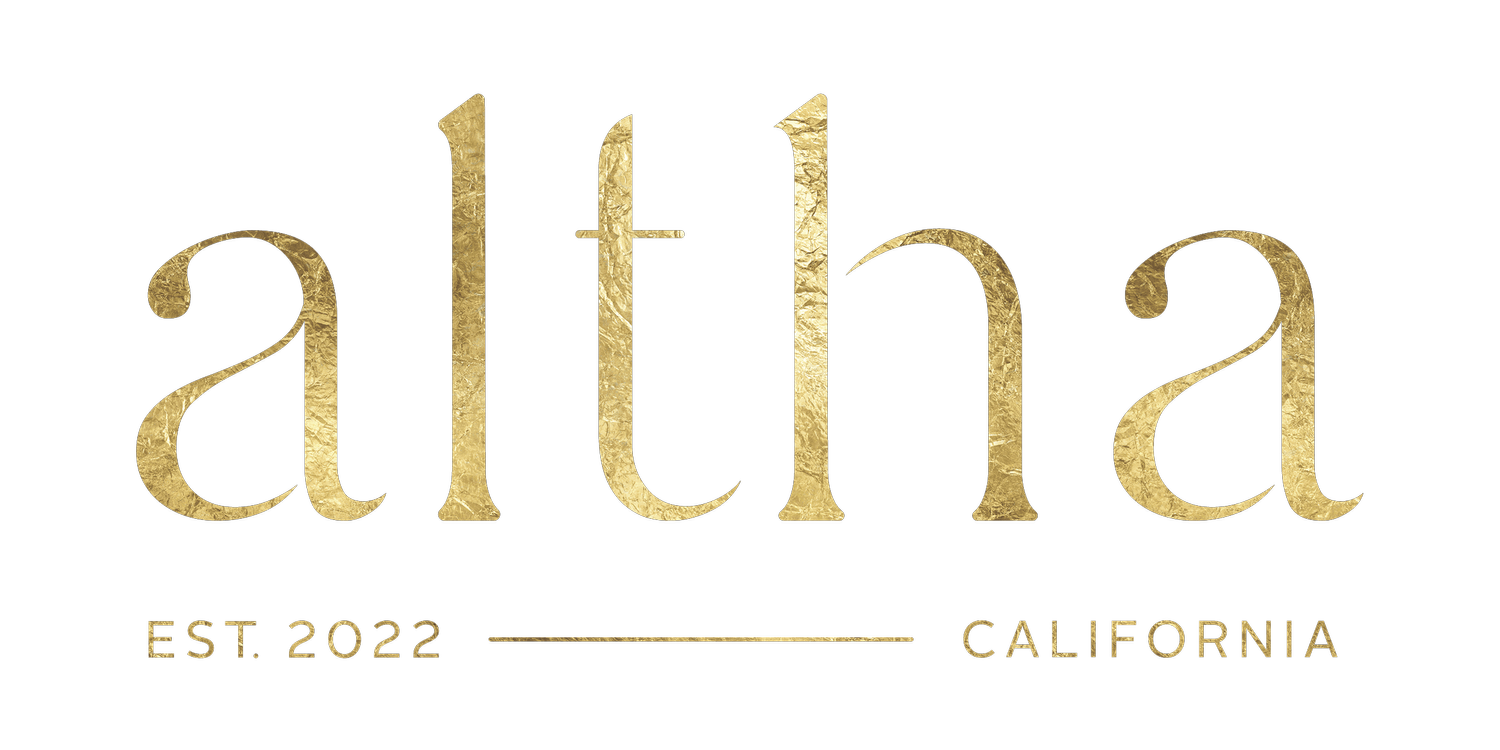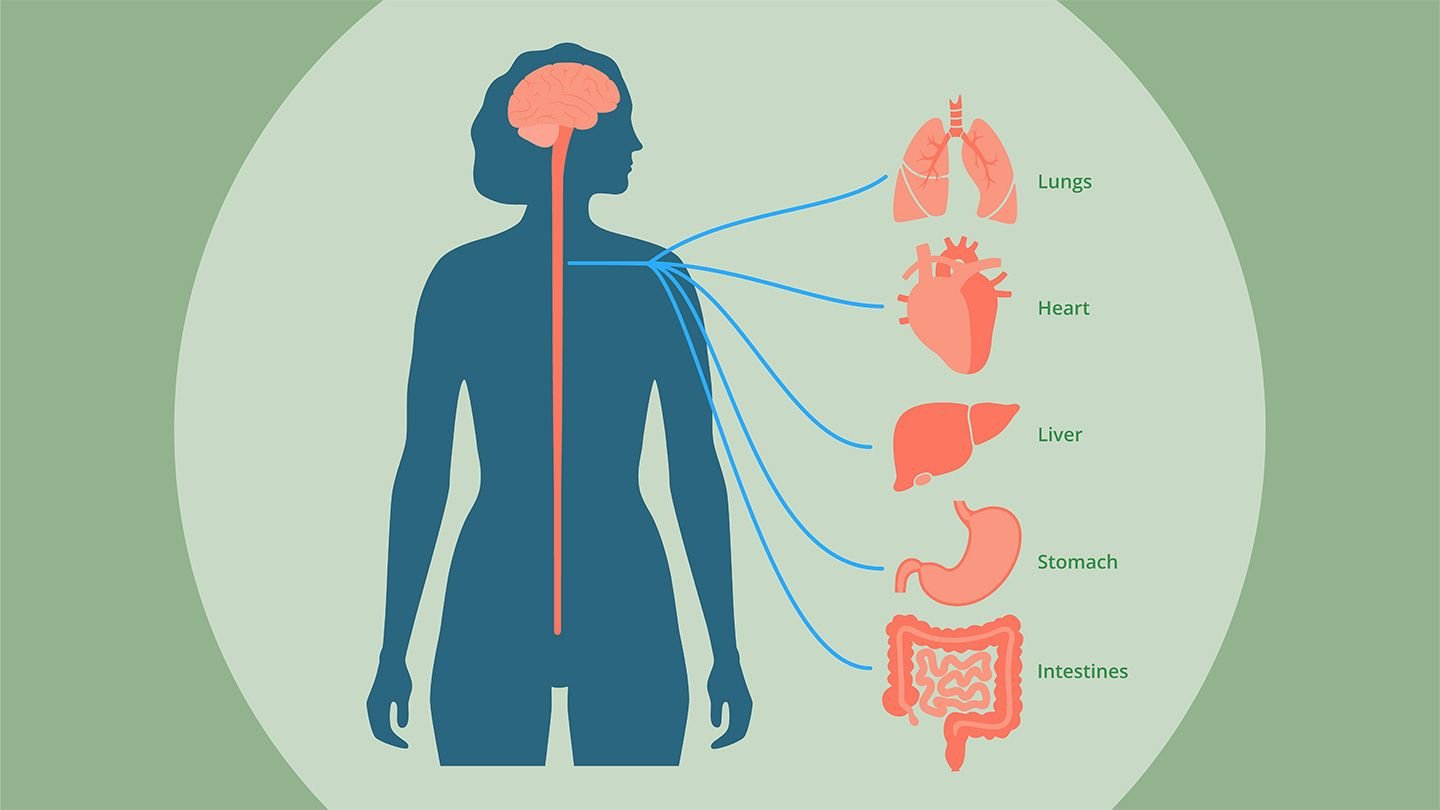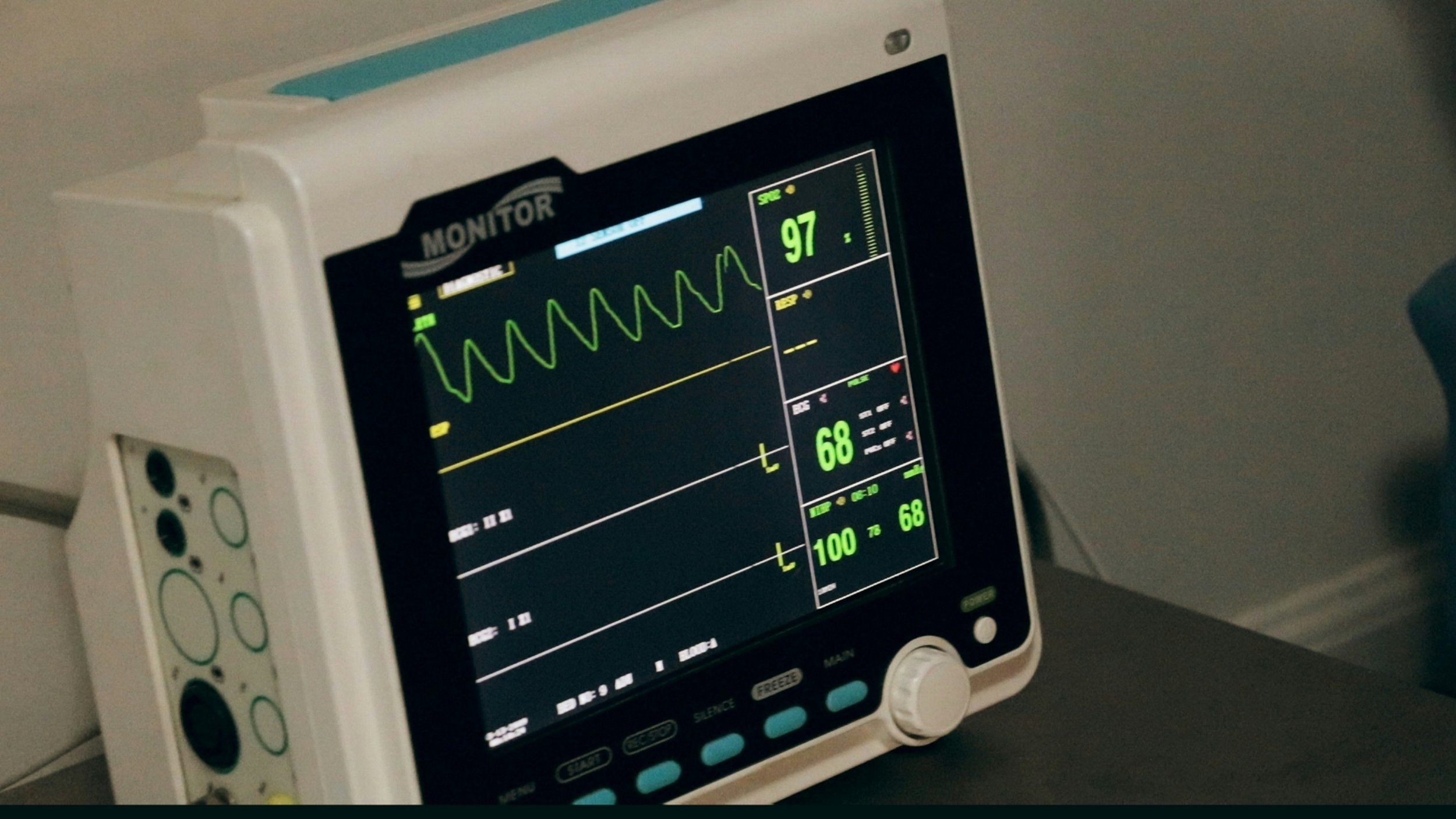The Impact of Sound Therapy on the Brain-Gut Connection
In the intricate system that is the human body, the autonomous nervous system (ANS) plays a pivotal role in regulating essential functions that keep us alive and thriving without conscious effort. Understanding its two branches—the sympathetic and parasympathetic systems—unveils the profound influence they have on our well-being, including our gut health and explains how sound healing can be a great tool for nervous system regulation.
Harmony Within the ANS:
Sympathetic and Parasympathetic Systems
The Sympathetic
The ANS orchestrates our body's responses, from the instinctive fight-or-flight reactions of the sympathetic system to the restorative balance of the parasympathetic system. While the sympathetic system was created for human survival (such as when we were approached by a predator), constantly activating it in modern life can lead to chronic stress and creates a perfect environment to develop ailments like cancer (which is actually an immune system disorder).
The Parasympathetic
In contrast, the parasympathetic system fosters equilibrium, supporting our immune, digestive, and reproductive systems while redirecting blood flow to higher brain functions for problem-solving. This state is known as rest and digest and is crucial for our overall health.
Photo Credit: Everyday Health
Navigating the Vagus Nerve and Epigenetics
Vagus Nerve
Central to this delicate balance is the vagus nerve, the main nerve of the parasympathetic system. It’s tone (how active the vagal nerve is) reflects the nerve's activity level and is crucial for feeling safe and maintaining our well-being. Interestingly, negative emotions weaken the vagal tone, worsening stress-related issues.
Epigenetics
Epigenetics, the study of how external factors influence gene expression, allows us to have agency over shaping our health outcomes. By understanding how our bodies adapt to survive, we reclaim power over our well-being. At Altha, our mission is to empower individuals to take control of their health.
Polyvagal Theory
Introduced in 1994 by psychologist and neuroscientist Stephen Porges, polyvagal theory links the role of the vagus nerve to our emotional regulation, social connection and fear responses. While the sympathetic system triggers fight or flight, a regulated dorsal vagal response can induce shutdown or freeze—a state associated with gut issues and dissociation. In contrast, a ventral vagal response cultivates social engagement, reducing stress and promoting overall well-being.
HRV and the “Second Brain”: Windows Into Our Health
Heart Rate Variability
Heart rate variability (HRV) also offers insights into autonomic functioning, reflecting the body's ability to recover from stress. A low HRV indicates vulnerability, leading to fatigue, poor sleep, and anxiety—a reminder of the intimate connection between brain, heart, and overall health.
Restoring The Balance
A healthy, regulated ANS ensures quick transitions between sympathetic arousal and parasympathetic restoration. However, a dysregulated system can trap us in a perpetual state of stress, compromising health and resilience.
Unlocking the Second Brain: Understanding Gut Health
Our gut, often dubbed the "second brain," consists of millions of neurons and serves as a crucial extension of the nervous system. It's ruled by the enteric nervous system (ENS) and the vagus nerve, and plays a pivotal role in mental health and stress management.
Sound Healing: A Tool for Gut-Brain Axis Harmony
Sound healing therapy is a scientifically supported approach to nudging the body into parasympathetic dominance and away from chronic stress. Through sound baths, meditation, or hypnosis, we have the ability to train the brain to embrace balance, reducing cortisol levels, heart rate, and inflammation.
Sound healing can be an incredibly effective tool for restoring harmony within the gut-brain axis. By inducing a parasympathetic response, it reduces cortisol levels and enhances insulin sensitivity, promoting our overall well-being.
Final Thoughts
The profound connection between the brain and gut underscores the importance of nurturing both for optimal health. By embracing practices like sound therapy and prioritizing gut health, we pave the way for resilience, vitality, and holistic well-being. At Altha, we invite you to join us on this journey toward inner harmony and abundant health.
To discover the power of sound healing at one of our upcoming events, click here.
Frequently Asked Questions
-
A. Attending a sound healing event can benefit individuals by promoting relaxation, reducing stress levels, improving sleep quality, enhancing mental clarity, and fostering emotional well-being through the therapeutic effects of sound vibrations.
-
A. Experiencing a private sound bath offers numerous benefits, including deep relaxation, stress reduction, improved sleep quality, enhanced mood, and heightened sense of well-being.
-
A. Attending a sound bath in Los Angeles offers numerous benefits, including relaxation, stress reduction, improved sleep quality, enhanced focus, and a sense of overall well-being.











